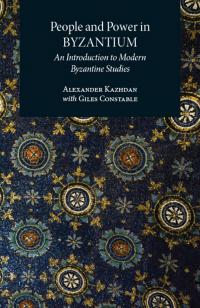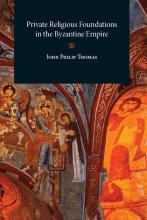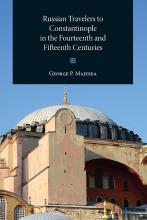People and Power in Byzantium
People and Power in Byzantium
By: Alexander Kazhdan, Giles Constable
This volume seeks to understand the distinctiveness of Byzantine culture and grasp the pressures that shaped Byzantine people, including not only powerful but also the poor, humble, and uneducated.
Title information
In this introduction to modern Byzantine studies, Alexander Kazhdan seeks to understand the pressures that shaped Byzantine culture and people, including not only the powerful but also the poor, humble, and uneducated. Investigating the past in all its complexity and contradictions, the authors approaches homo byzantinus from various perspectives—position in society, relation to power, attitudes toward material environment, self-image, and image of God—to show what was distinctive about the people of the Byzantine Empire and their civilization. This volume challenges Byzantinists to ask new questions and introduce new methods and perspectives in order to understand how Byzantine society worked and how this understanding can help in appreciating the modern world.
Alexander Kazhdan
Alexander Kazhdan was senior research associate at Dumbarton Oaks from 1979 until his death in 1997. His greatest English-language project, the three-volume Oxford Dictionary of Byzantium (1991), remains an indispensable point of departure for all areas of Byzantine studies.
Giles Constable
Giles Constable is Professor of Medieval History, Emeritus, in the School of Historical Studies at the Institute for Advanced Study, Princeton.



